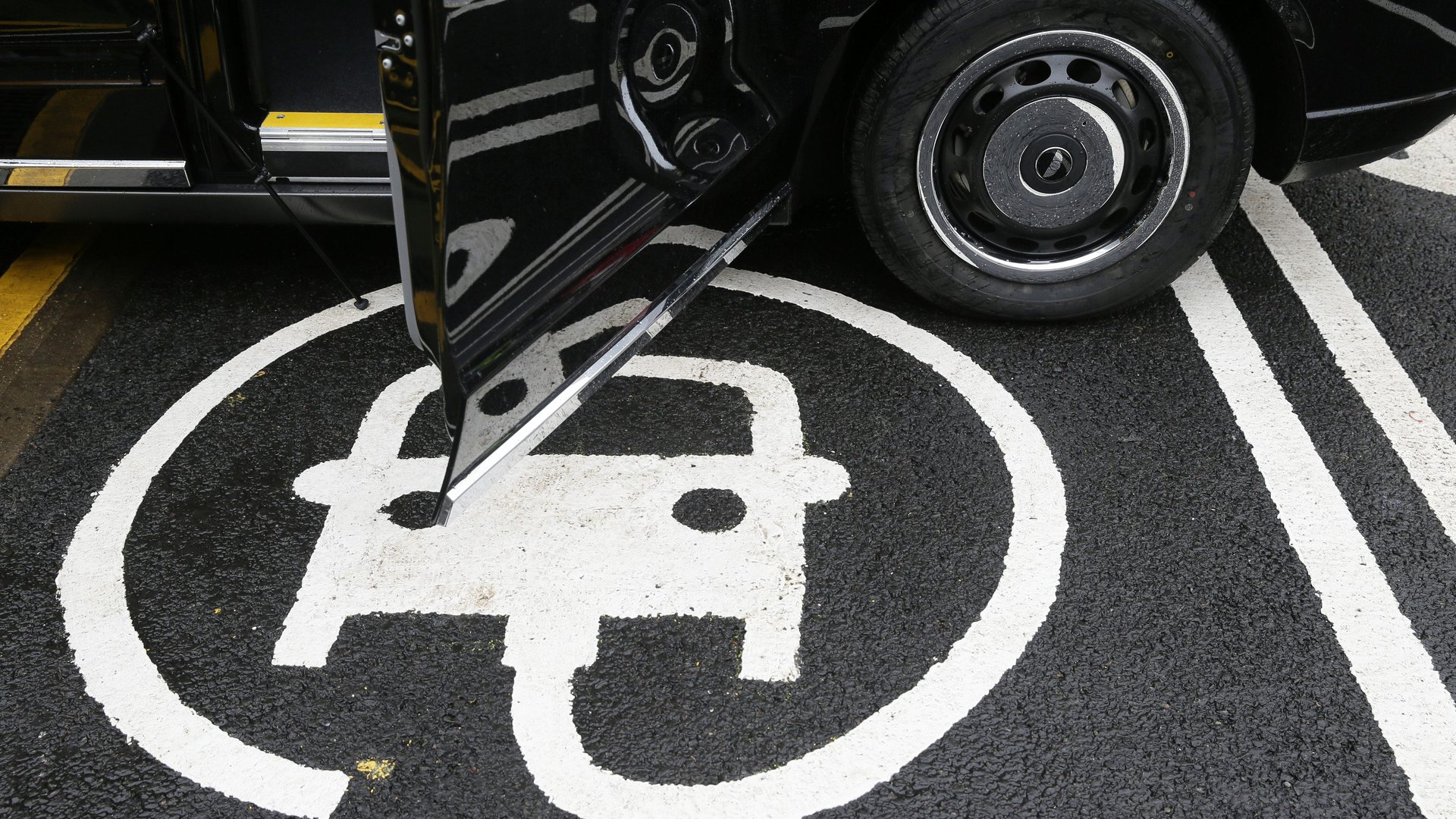Electric-car batteries that charge in five minutes have lured an unlikely investor: Big Oil
In the 1990s, oil companies and and car makers once worked together to scupper the electric vehicle industry in the US, according to the documentary Who Killed the electric car? about America’s first mass-produced electric car. That was the EV1, which General Motors rolled out in 1996, and terminated just a few years later.


In the 1990s, oil companies and and car makers once worked together to scupper the electric vehicle industry in the US, according to the documentary Who Killed the electric car? about America’s first mass-produced electric car. That was the EV1, which General Motors rolled out in 1996, and terminated just a few years later.
Fast forward two decades, and Big Oil appears to finding it hard to resist the booming electric vehicle (EV) market, which saw an annual 50% growth rate in global sales last year. The latest example is BP, the British multinational oil and gas giant, which is betting on the development of a battery that can be recharged within five minutes. BP’s venture arm invested $20 million in the Israeli battery startup StoreDot, which has been working on the technology, according to BP’s announcement on Tuesday (May 22).
StoreDot says the rapid charging works thanks to flash batteries made from organic nanomaterials it designs, which it says are better at quickly absorbing a charge than the traditional lithium-ion components commonly used today in phones and EVs. The battery system it’s developing for cars will be able to charge an EV with a range up to 300 miles in five minutes, according to the firm. For comparison, Tesla’s supercharger can refill a Model X, which has a battery range up to 565 kilometers (351 miles) in 30 minutes.
It’s hard to make a battery that’s good at charging quickly without overheating, while also keeping costs low, noted EV news blog electrek. But StoreDot says its batteries will not make EVs more expensive.
Its technology is probably going to come to phones before it comes to electric cars. In 2015, StoreDot showed a demo of a Samsung phone (video)—another investor—that recharged in a few minutes. StoreDot says its flash batteries for mobile should be commercially available next year, according to the BP statement. It’s unclear when the rapid-charging batteries for EVs will arrive.
Better battery range and quicker charging, as well as convenient access to charging stations are key to mass adoption of electric cars. For example, China, the world’s biggest EV market, wants to have 2 million in combined sales of fully electric and hybrid vehicles in 2020—by then the country also wants to have one charging station for each car.
Big oil companies like BP seem to be accepting that the future of cars is electrified. Earlier this year, BP Venture invested $5 million in an American EV charging manufacturer in order to add charging points at its UK petrol stations. In BP’s latest annual energy outlook, the firm predicted that oil will continue to be the dominant fuel type (pdf, p. 34) in transport through 2040. But it also noted that the the fuel demand for new passenger cars in major vehicle markets like Europe, the US, and China continues to fall (pdf, p. 36). Other oil companies too have been investing in charging.
“Ultra-fast charging is at the heart of BP’s electrification strategy,” said Tufan Erginbilgic, chief executive of BP’s product team. ”We are committed to be the fuel provider of choice—no matter what car our customers drive.”